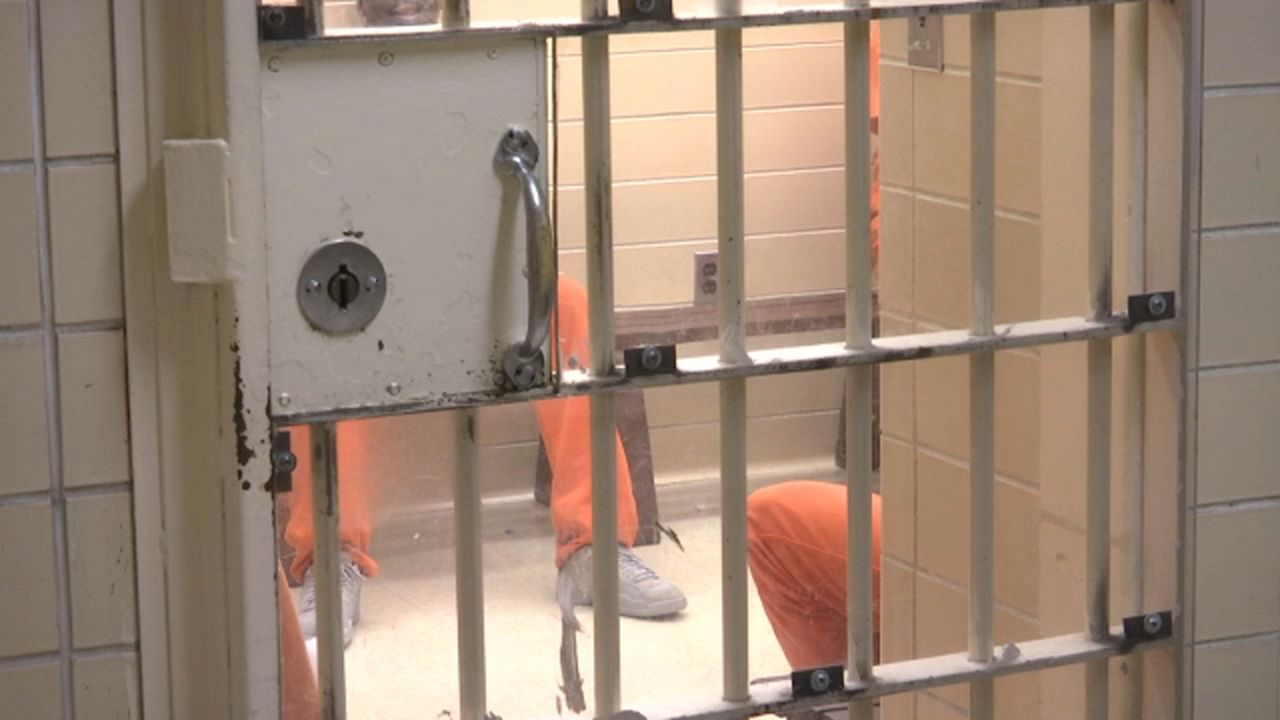FRANKFORT, Ky. - Kentucky's county jails are bursting at the seams.
76 county jails are housing 12,00 state inmates, that's about half of the state's overall inmate population.
Almost 30 of those jails are 150 percent overcapacity. Just between five and ten are right at capacity.
The average stay of an inmate in county jails is 109 days but most of these jails aren't set up for long term stays.
It accounts for $150 million of the roughly $650 million of overall incarceration costs in the state.
Justice and Public Safety Cabinet Secretary John Tilley told lawmakers at a committee the overpopulation of county jails is a problem waiting to happen.
“We’re dealing with a powder keg at the state level, and at the county level, I can promise you that,” Tilley said. “There’s not enough time to discuss how much of a powder keg it is, we are lucky as a state that something hasn’t happened that would draw national headlines.”
Currently, counties are required to house Class D felons--and inmates awaiting trial.
Part of the overpopulation problem could be solved by changing some of the conditions for pretrial release.
“The whole issue of bail and how we detain inmates pretrial is another reason this is a powder keg that can be solved with commonsense bail reform,” Tilley said.
Tilley said in 2016, Kentucky held 37,000 pretrial inmates for an average of 109 days, who were low to medium risk which cost over $100 million.
Counties are being left to pick up the tab for the state inmates-they do receive about a $31 per inmate, per day per diem but that number hasn't changed for 11 years.
Tilley recommends increasing that number but through performance-based funding.
“We have to incentivize better practices for those who are willing to step up and provide better practices,” Tilley said. “We have to incentivize that otherwise, we are leaving fiscal courts with no other choice if they are looking at dollars and cents.”
Some lawmakers expressed concerns over the public perception of the issue.
“Most of the general public is not concerned about prison overcrowding, now when it comes a financial issue and then a tax issue, they will be concerned with a tax issue,” said Sen. Chris McDaniel, R-Taylor Mill. “But ultimately, a lot of the response I hear from a lot of our people when you talk about this issue is as long as they get fed, as long they don’t get beat up, though.”
But some counties like Madison County have seen their taxes increase as a result of overcrowding.
“Our citizens are faced with a 136 percent property tax increase in their rate,” said Rep. Deanna Frazier, R-Richmond. “We have over 400 prisoners in a 180-bed facility, our budget is over $400,000 for housing outside prisoners and we have now reached close to $1.3 million.”
Jailers also spoke in front of the committee advocating for more funding for substance abuse programs.
Recidivism rates are higher in jails than prisons in part due to the number of inmates there due to drug addiction. All prisons in Kentucky offer substance abuse classes while only some jails do.
Jailers acknowledge funding is tight in Kentucky and suggested a different way to get substance abuse programs in all county jails for minimal costs by putting the substance abuse classes on TVs already in jail cells.
“Let’s pipe this in and that cuts the cost,” said Mike Simpson, an Oldham County Jailer and Vice President of the Kentucky Jailers Association. “We are going to have the same message being delivered, remember it’s how you deliver the message, shared responsibility and we hope we could get shared results.”h of the county jail overcrowding is from the uptick in drug addiction.



